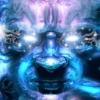You have never said why you are running chkdsk. Was there a problem that you needed to run it?
If you have run the more complete tests and the drive seems to be ok, then likely chkdsk is getting stuck in memory or it is unable to repair file system data.
Please follow this path:
start:all programs: accessories ; "right click" on command prompt and choose Run As administrator.
From the command line type the following and hit enter:
CODE
fsutil dirty query C:
What we are looking for is a dirty (corrupt) file system. If the output states that the drive is NOT dirty, then you'll want to run memory tests to confirm
that the "Data Stream" isn't getting corrupted in RAM.
In this case Data Stream can be thought of as the reading of File System Information by the chkdsk command.
If the Volume is found to be dirty, you should re-install windows rather than trying to search every file to find the culprit.
If the Volume Dirty bit is NOT Dirty, then you definately want to run the Memory Diagnostics Tool to determine if Memory is Bad.
To run the Memory Diagnostic Tool
start:all programs:Administrative Tools "Right Click" on the Memory Diagnostics Tools and choose "Run as Administrator"
Reboot your computer, and wait for the memory tests to complete.
If you have Bad memory you should contact the manufacturer of the computer to replace the memory if it's in warranty. If it's out of
warranty with Bad ram, then go to a Retail Outlet to get the ram for your computer.
If the hard drive passes the above test's, yet you still can't run chkdsk - I'd have to assume that there's a non-recoverable error in the file system on the hard drive. The definitive test/fix for this is to reformat your computer and reinstall Windows
Using the Toshiba recovery disks it should only take about 30 minutes or so. But it will erase everything on your hard drive and will replace it with the stuff that was there the day the computer left the Toshiba factory. So it's imperative that you backup anything that you can't bear losing BEFORE using the recovery disks.
If you've used the recovery disks and still have the problem, then I'd have to wonder if there's a problem with the hardware (other than the hard drive and it's file system) on the system.
1) Go to Start and type in "perfmon /report" (without the quotes) and press Enter. This'll generate a performance report. Look at it to see if there's any errors, warnings, or information of note.
2) Go to Start and type in "perfmon" (without the quotes) and press Enter. In the window that opens, click on the Reliability Monitor in the left hand pane, then look at the right hand pane for errors. In particular, look for errors around the time that you attempted to run chkdsk.
3) Go to Start and type in "eventvwr.msc" (without the quotes) and press Enter. Under the Windows logs, check the Application and System log for errors. Also check for an item named "wininit" in the Application log around the time that you ran chkdsk - this will be a record of what chkdsk found/did. Let us know what you find.
SRX660















 Sign In
Sign In Create Account
Create Account

